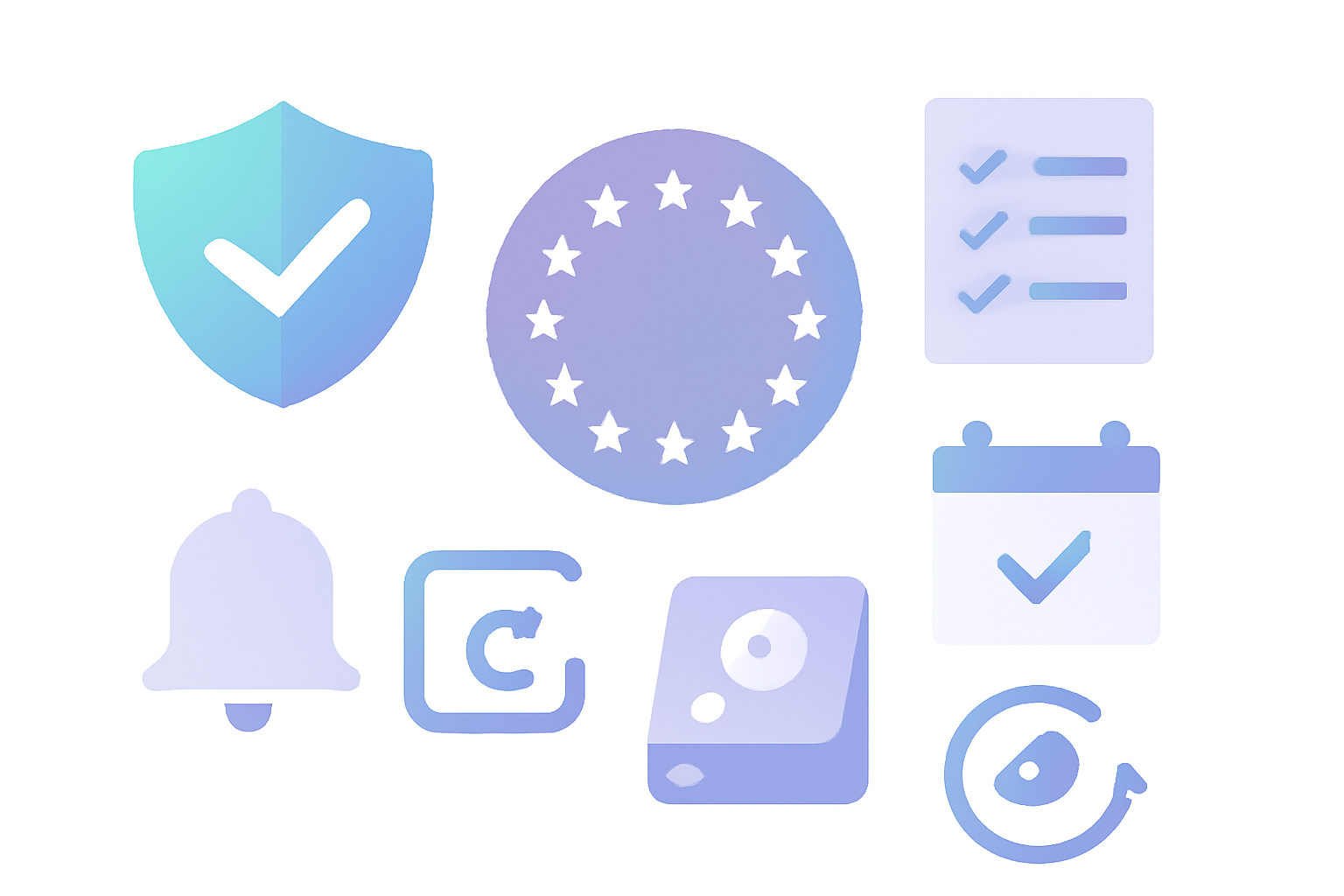Who is affected?
The NIS2 Directive applies to significantly more industries than its predecessor: energy suppliers, telecommunications, transportation, healthcare, food supply, cloud and hosting providers, financial service providers, but also many smaller companies that are part of important supply chains. The new rules apply to everyone who contributes to Europe's digital infrastructure — regardless of company size.
What are the most important requirements?
- Risk management: Companies must not only identify risks, but also actively manage them. This includes regular risk analyses, the use of modern security technologies and targeted training for employees. This is the only way to identify weak points at an early stage.
- Reporting: Security incidents must be reported within 24 hours. This requires clear processes and fast, reliable internal communication. Anyone who hesitates here risks fines and damage to their image.
- Safety measures: Robust protocols are mandatory. This includes firewalls, access controls, emergency plans, and regular updates. Cooperation with external IT experts is also becoming more important.

.svg)











